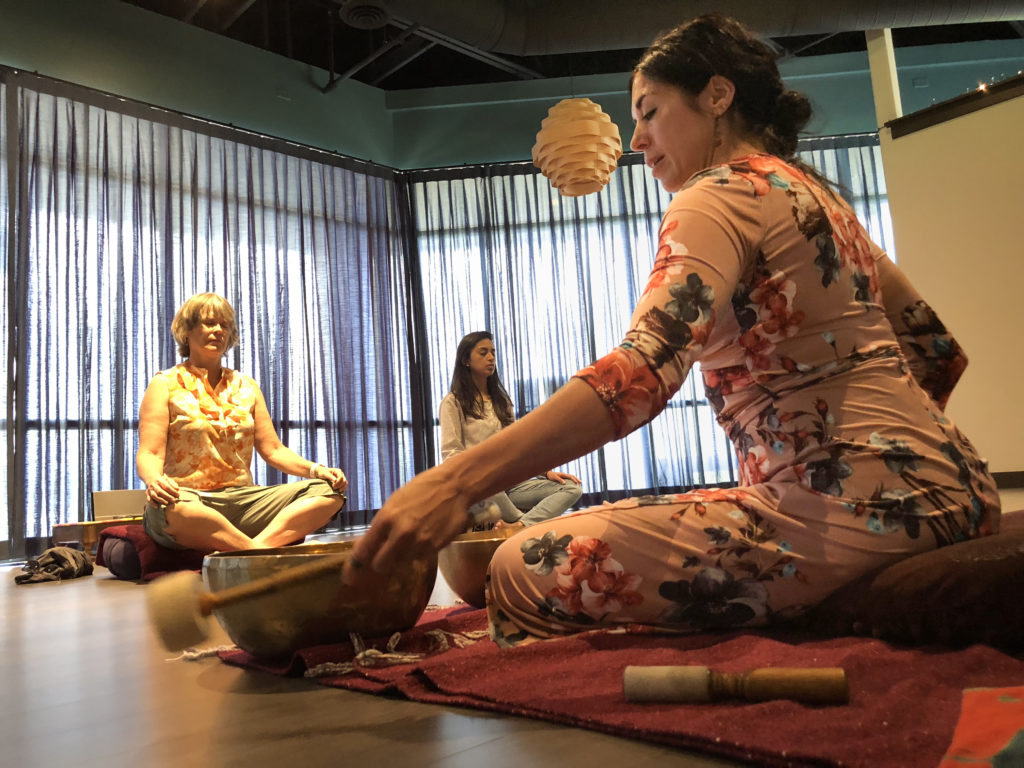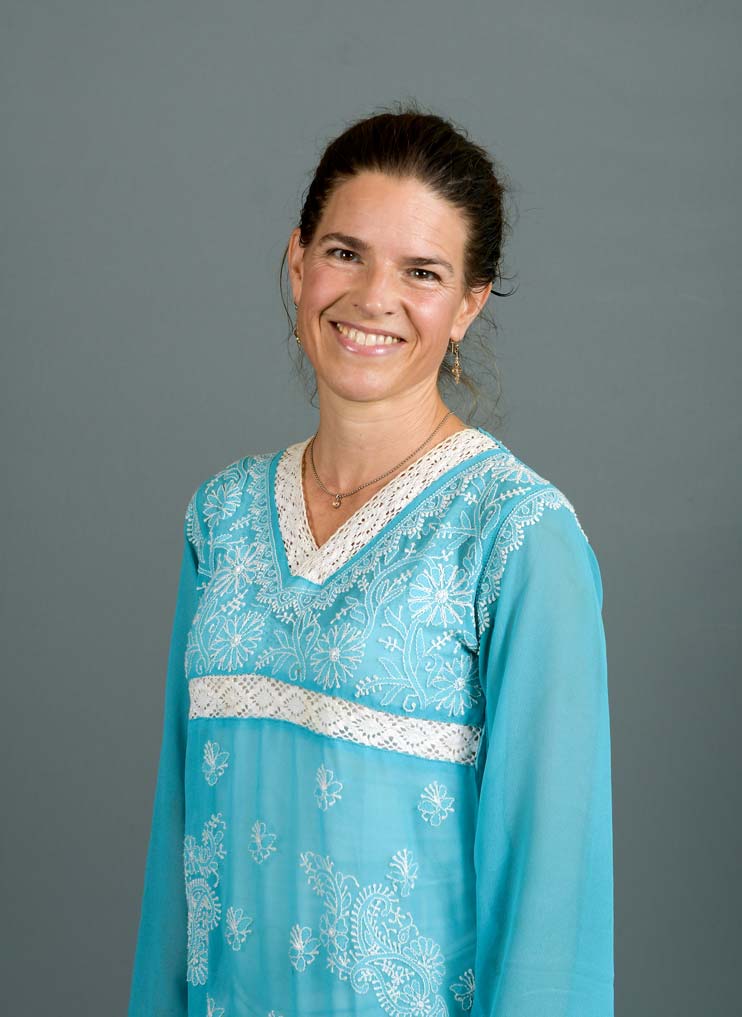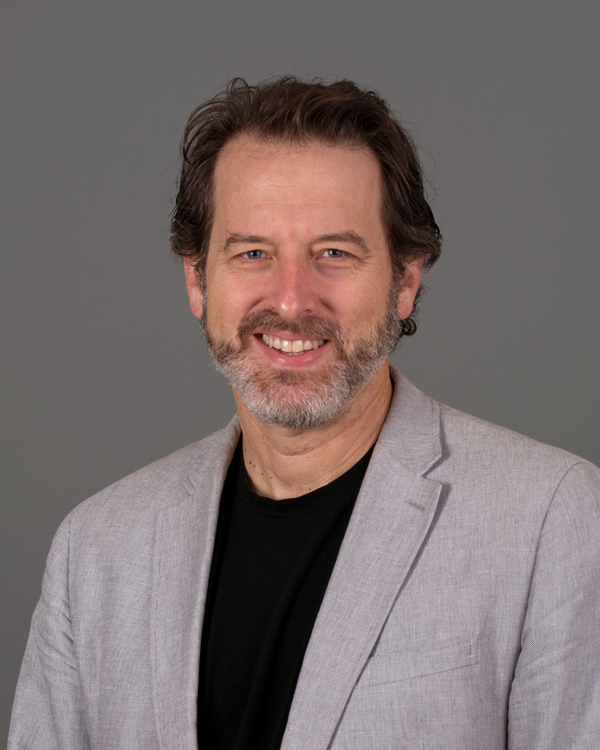Today’s blog is written by Malynn Utzinger, Director of Integrative Practices, and Tim Weitzel, former ESI Architect.
The essence of emotional and social intelligence (ESI) is a mindful and intentional approach towards life. This translates into our ability to recognize our internal states in each moment and being able to discern whether a current inner state serves ourselves and others or whether it is self-defeating and potentially destructive to others. ESI is the capacity to choose to move towards a greener, more optimistic and empowering state. It is also being able to tune into other people’s experience with empathy and compassion in order to choose the most appropriate response to them, and it is knowing how to respond skillfully –at work and at home — in a way that leads to the best possible outcomes.

COVID-19 presents a challenge to our normal lives that has caused many to find themselves experiencing increased anxiety and contextual depression—a sluggish tiredness that mitigates against a sense of empowerment and aliveness. In times of stress and uncertainty, Emotional and Social Intelligence (ESI) helps us grow the capacity to face life as it is with vitality, optimism and compassion. This compassion, it must be said, is also meant to be extended to ourselves, when we come, even momentarily, to the limits of our optimism and vitality. This blog series is specifically intended to provide teachings and guidance for enlivening ourselves in challenging times, especially those brought about by COVID-19. This first installment addresses the topic of our inner multiplicity and the power this gives us to hold more of life and to function freely instead of becoming fractured.
Exploring Our Inner Multiplicity
What do we mean by our inner multiplicity? We are comprised of an array of inner parts, perspectives and voices that make us whole. Having conscious awareness of our inner voices, being curious about them and how they affect us, is a form of self-awareness. Some inner voices can make us feel healthy and vibrant, whereas others can make us feel small. But when we have access to these parts, when we know them and have a sense of what they contribute to our lives, we are more freely functioning than when we don’t have that inner awareness.
When some of these parts are not explored or are actively suppressed, we not only lose the teachings those parts have to give us, we create psychological work in holding those doors shut. The aspects of ourselves that we decide to keep at bay can be roles we let go of in order to keep our professional selves humming – the artist, the adventurer, the woodworker, the mentor, the friend. Of course, we also shut off feelings we find unacceptable, such as fear or selfishness, which might make us feel weak, self-serving or afraid of never getting unstuck.
We must accept our multiplicity, the fact that we can show up quite different in our athletic, intellectual, sexual, spiritual—or many other—states. A heterogeneous collection of states is completely normal in us humans. The key to [enlivened] well-being is collaboration across states, not some rigidly homogenous unity.
-Daniel J. Siegel
Exploring the whole of yourself might reveal aspects that have very different needs and might seem to be at odds with one another. Other aspects may be at odds with what our culture deems to be “a good way to be.” When we encounter a person who is comfortable exploring the whole of himself or herself, there can be a palpable sense of liberation or freedom about them. The poet Walt Whitman wrote in Song of Myself, “Do I contradict myself? Very well then, I contradict myself. I am large. I contain multitudes!” One can feel his expansive nature, his okayness with the whole of his life, in these lines.
In these past months, as we have each encountered changing work conditions, changing roles and sometimes threats to basic parts of ourselves which for some have led to confusion and contextual depression. Our stories that “I am a breadwinner, a planner, or professional of some kind” can easily be shaken. By enriching our sense of healthy inner multiplicity, we can restore a sense of aliveness and resilience by availing ourselves to the life energy in these other parts that were forced to take a back seat to our primary professional identity.
Accessing Multitudes During Challenging Times
Imagine a person who has worked their whole life in science. Perhaps they are identified strongly and solely as a researcher. Now imagine that something happens—they get sick or lose their job, and imagine that they are unable, for the foreseeable future, to do that work again. If that person has no other aspects of the Self to draw on, chances are high that they will be crushed—rendered lost for some time. Whereas when we imagine that same loss happening to someone who can access a wider range of inner parts—the lover of nature, the brother or sister, the volunteer, the one who was always curious about architecture, the blow is not the same. While there will be loss, for this person, there is an inner territory to land in, a space for curiosity about other ways of living and giving, a sense that the essence or through line of oneself is still intact.
The loss of a job is a dramatic example, but we encounter smaller losses and uncertainties each day. We fear being taken off a project we’ve developed expertise in, or we fear being left out of a major decision at work. To have a larger sense of who we are leaves us a place to land when this happens. And when more of us feels intact, we can be more skillful in our responses—perhaps using courage and kindness to stand for our contribution and seek innovative ways to maintain it or using curiosity and grace to move on to new projects and adventures.
There is no certainty; only adventure.
-Roberto Assagioli
For all of these reasons it is life-enhancing to be in touch with the many faces of yourself. Go outside or find a spot from which to let your inner eye wander. Use your hobbies and passions and moments of curiosity and connection to others not just as a break from the intensity of work and COVID (although that is good too) but as a way of building the ground of our being, a way of being bigger inside. No matter what you encounter when you ask “Who am I?” and “What do I contain?”, in the asking, you will be opened up a larger space for the living of life. Allow yourself to enjoy even the smallest of new answers, for they are sometimes the most moving. To discover that you are a person who can be moved by the song of a robin or the sound of raindrops or the laughter of your child or a smile on the face of a person across the globe is to know something essential about yourself and your place in the great nest of our shared being.
Take ten minutes to focus on mindfulness
This blog is part of an ongoing series on Emotional and Social Intelligence.
Explore the other installments of the series:

As a Family Medicine physician and Director of Integrative Practices for Promega, Malynn thinks of herself as one who stands with a foot on either side of the chasms we humans encounter in life, helping us stitch together our worlds, our words, and our ways of being with each other. At Promega, her work in ESI has focused on helping people begin with self-understanding and move toward better understanding of others, ultimately supporting the roots and branches of a vibrant work community in which people feel belonging and a high sense of contribution. Malynn has worked in Family Medicine, Integrative Medicine, and Preventive Oncology at the UW, as the Director of Women’s Health for the Chopra Center in San Diego, as a consultant in integrative medicine and emotional intelligence for GHC and Eileen Fisher in NYC, and in research at Planetree and the Preventive Medicine Research Institute of San Francisco. She now lives in Madison, WI with her husband and son.

Tim is former ESI Architect at Promega, and he has spent his entire 30+ year career in Cultural Development Consulting, Executive Coaching, Executive Assessment, and Leadership development. From the beginning, he has stressed authenticity, courage, compassion and connection both in his approach with clients as well as being the foundation for excellent and sustainable leadership. He works with his clients using a variety of tools such as Depth Psychology, Day-in-the-Life Simulation Assessment, 360 Feedback, Personality Inventories and more to identify strengths and development gaps that create focused organizational change and/or learning goals. Tim has coached people at all levels and consulted in many top companies including Promega, Marriott, Walmart, McKesson, Lockheed Martin, Schneider National, Wisconsin Gas Company, Raytheon, Fiserv, Adventist Health, Pacific Gas & Electric, Trek Bicycle, John Deere Credit, General Motors, and many more top-tier organizations as well as numerous smaller regional and local businesses.
